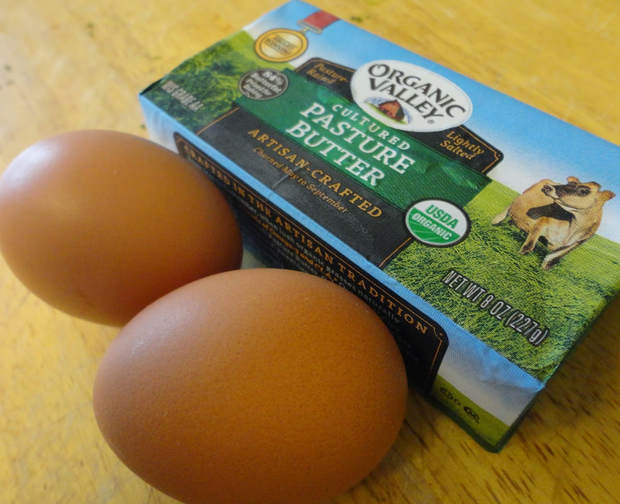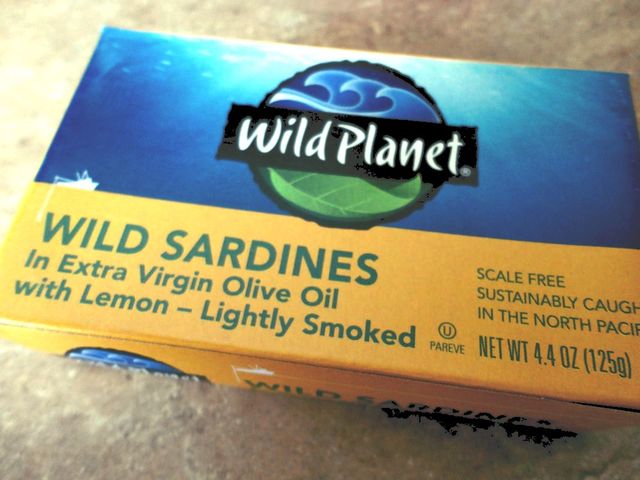|
Retinol vs Beta-Carotene (or, why we need animal foods) Vitamin A is a powerful antioxidant and benefits the body in so many ways, yet it is not emphasized in the mainstream nutrition world. I did not come to find out how important it was until well after college, especially the real sources of vitamin A and the essential role of animal foods. It was not until I started researching traditional diets and real food nutrition that I started to learn the many roles of vitamin A and how to get it in an ancestral diet. When most people think of vitamin A, they think of carrots and vision. This is only a tiny piece of the puzzle, however. True vitamin A, also called retinol, is fat-soluble and comes from animal foods, not plants. There is a misconception around vitamin A, where it is believed that the best sources are carrots and other orange foods, but those are actually rich in beta carotene, a precursor to retinol. Plant foods contain carotenoids, which are great antioxidants, but must be converted into true vitamin A in the body to be fully utilized. This process requires adequate fat intake, so those on a low-fat vegan diet would likely be deficient. Average conversion of beta-carotene to retinol is around 2-28% (28% is on the very generous end), meaning those who consume all of their un-converted vitamin A from plants would have a very hard time meeting their vitamin A needs, and conversion could be even lower if someone is in poor health. Genetic variations and medical conditions such as cystic fibrosis and hypothyroidism can lead to poor conversion, with a large percentage of the population having almost no conversion capability. Having low amounts of vitamin D and zinc in the diet can also contribute to a vitamin A deficiency, even if you are eating plenty of vitamin A. To obtain the necessary amount of vitamin A , you will want to ensure you eat a diet rich in animal foods, along with adequate dietary fat for proper absorption and a lifestyle that includes plenty of outdoor time for vitamin D. The Role of Vitamin A Adequate vitamin A intake is so important because it has many essential functions in the body. It is well known as an antioxidant, so getting enough is necessary for protection from free radicals. This oxidative can come from pollution, plastics, stress, illness, and other environmental and dietary factors. The antioxidant activity of vitamin A can help prevent inflammation, disease and potentially cancer in the long-term. Besides an antioxidant, vitamin A also has a role in RNA synthesis and the digestion of protein. It is needed for the absorption of minerals, especially calcium and phosphorus, so a lack of vitamin A can lead to poor bone and dental health. People working on healing their cavities and re-mineralizing their teeth have to ensure they get enough vitamin A in their diets for this reason. This fat-soluble vitamin also plays a role in fertility and reproductive health. During pregnancy, vitamin A is part of the growth and development of the fetus, including cell differentiation and helping create a healthy skeletal structure. Weston A. Price, the dentist who studied indigenous tribes, noted that the diets of those who were not introduced to modernized foods had diets rich in vitamin A. Their offspring had mouths that had plenty of room for teeth, and incidences of cavities were low. These children did not have the need for corrective orthodontics or invasive dentistry because of their healthful diets, which would be helpful for many parents with children today, who very commonly need dental and orthodontic work. Recommended Intakes for Vitamin A The recommended daily intake for vitamin A (retinol) is 2300 IU for adult women and 2600 IU during pregnancy, 3000 IU for adult men, with the upper limit (UL) being 10,000 IU daily for both sexes (2000 IU for children). Deficiency symptoms include night blindness and other eye or vision problems, hyperkeratosis (small red bumps, usually on the upper arms and legs), and possibly poor immunity, allergies and infertility. Lack of vitamin A could not only be caused by insufficient dietary intake, but also poor absorption due to some prescription medications. Toxicity, usually caused by over-supplementation of retinol, can lead to bone and joint pain, osteoporosis, nausea, dizziness, organ damage or even death. It is important not to mega-dose with vitamin A supplements for this reason, and to only get the amount your body needs, along with balancing vitamin A intake with vitamins D and K2. Supplements that provide vitamin A in the form on beta-carotene are generally safer at higher doses, but this still is not necessary. I usually do not recommend synthetic vitamins unless a specific medical issue requires it, and I exercise extra caution when the supplement contains pre-formed vitamin A (retinol). Adequate intake can be obtained from the diet, if planned properly. Where To Get Vitamin A The best food sources of vitamin A, as I have stated, are from animals. Liver has the highest amount, with egg yolks, milk fat, seafood and bone marrow also being rich sources. During the winter, you could supplement with small doses, I use 1/2 tsp daily, of extra virgin cod liver oil to provide extra vitamin A and D, though this may not be necessary for everyone. Having approximately 3 ounces of liver once or twice a week, such as pate, braunschweiger, or liver and onions, is a good way to make sure you get enough true vitamin A in the diet. Sardines, fish eggs, and other fish or shellfish at least twice a week is also beneficial, as these provide vitamin D and calcium along with the vitamin A. Regularly consuming pastured egg yolks, butter, whole milk or other dairy products, bone marrow and broth will help to meet the rest of your needs, along with vitamin K2 and saturated fats for proper absorption. Carrots, bell peppers, sweet potatoes, dark greens and other colorful vegetables will contribute beta-carotene after conversion to offer some vitamin A as well. A diet that includes plenty of orange, yellow and green vegetables along with the animal foods will provide carotenoids, as well as fiber, vitamin C, and minerals. As with all nutrients, I encourage people to meet their vitamin A needs through food instead of supplementation whenever possible. By adding in some super foods like egg yolks and sardines on a regular basis, and properly planning a balanced diet that is rich in animal and plant foods, you can meet your needs and work toward optimal health. If you are set on eating a plant-based diet, please take extra care to eat foods high in beta-carotene, while getting lots of good fats and sunshine for vitamin D so that you can convert it as much as possible to retinol. Also, if you have a medical condition or take a prescription that may interfere with your vitamin A status, it may be beneficial to see a dietitian to help make sure you are getting your nutrient needs met.
0 Comments
Leave a Reply. |
Brine & Broth
I am a gut health-focused nutritionist and online health coach based in Southwest Wisconsin. My recipes and philosophies center around traditional, nutrient-dense foods that support robust gut health. Archives
May 2022
Categories |






 RSS Feed
RSS Feed
